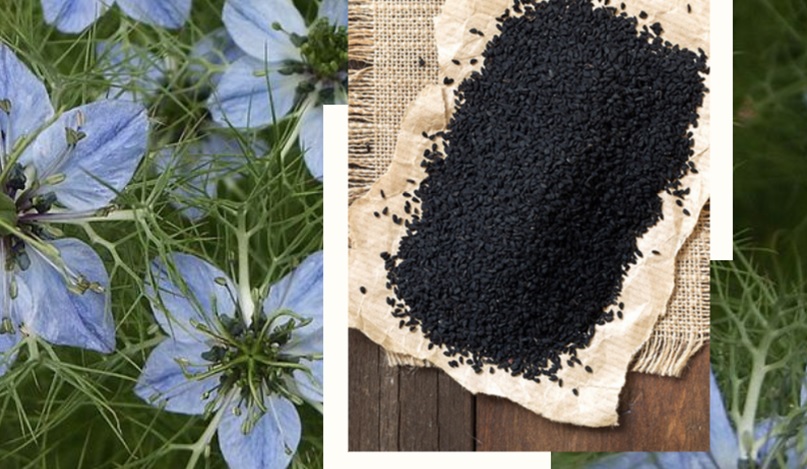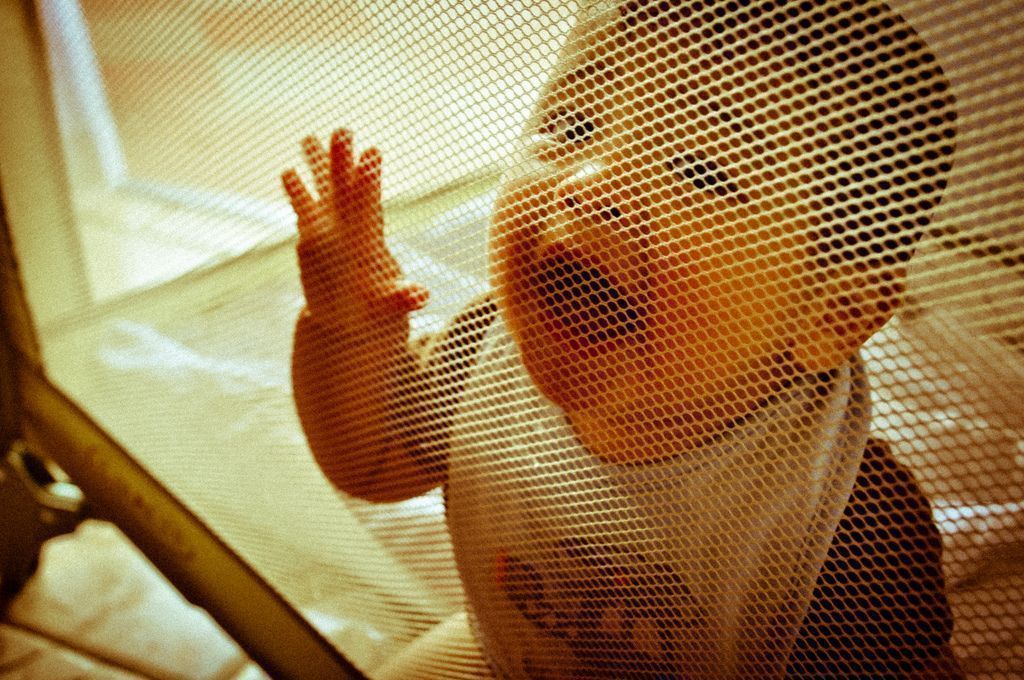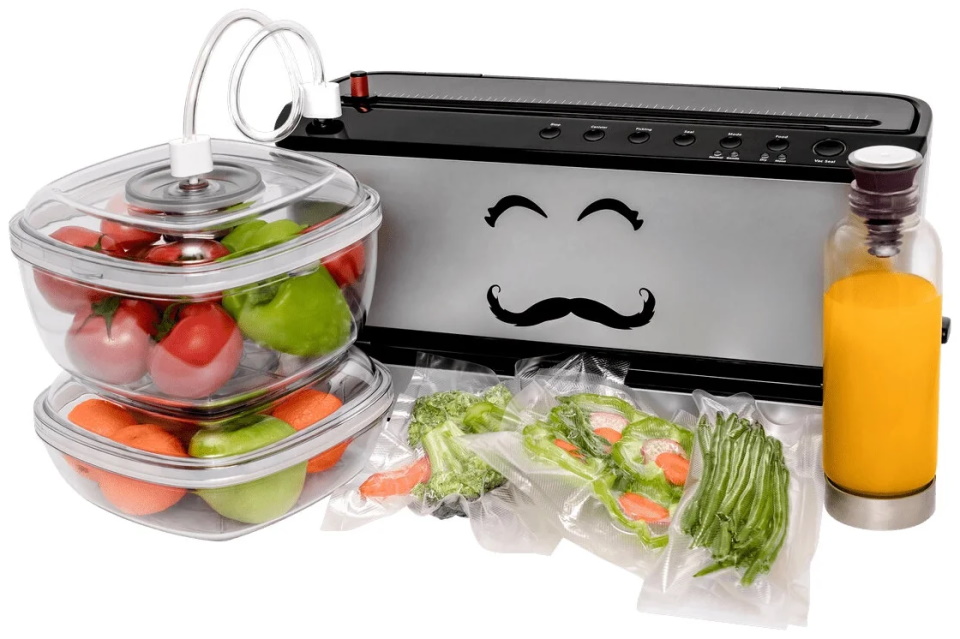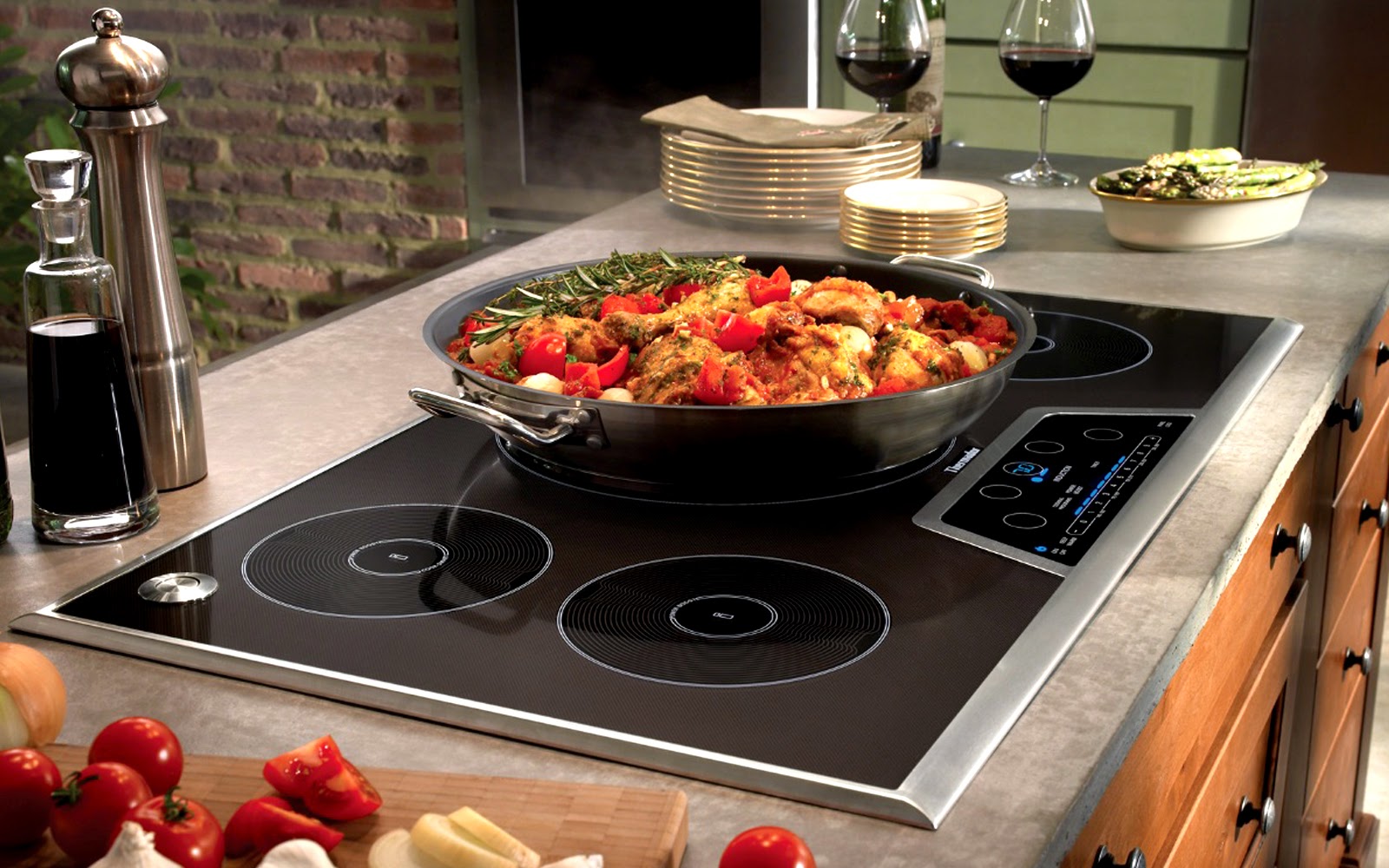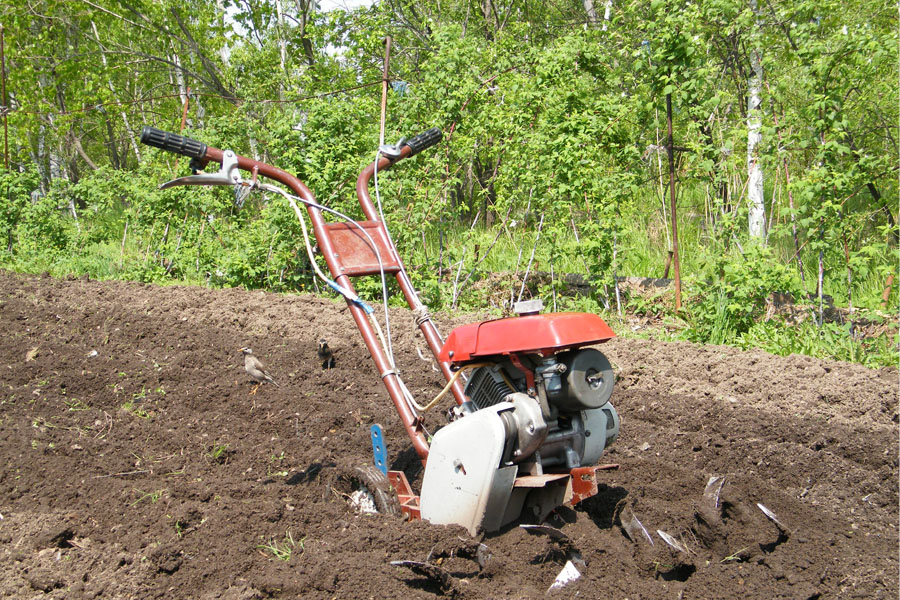Review of the best tile adhesives for 2022
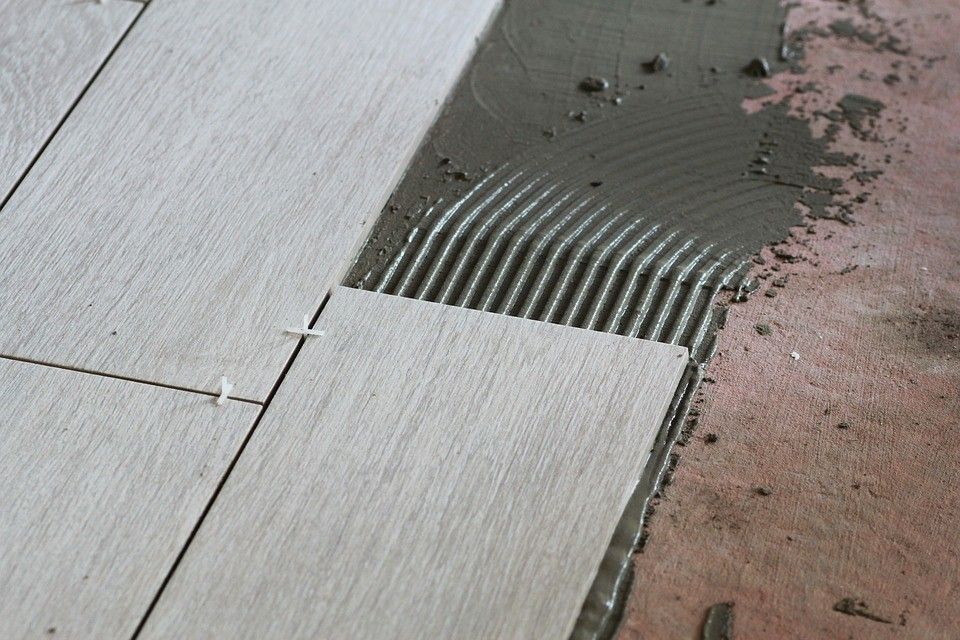
In the modern world, a huge range of facing tiles is produced daily. Incredibly beautiful and amazing, it adorns the exterior of buildings, and also creates interior decor for various room layouts. But in order to get beautiful decorations for the walls and floors of buildings, you need high-quality and reliable glue, which will firmly and for centuries attach ceramic tiles. Using what knowledge, you can learn how to choose tile adhesive? And also, what brands of adhesive solutions manufacturers are the most popular and in demand among Russian citizens for 2022? The answers to these questions will be given in a fairly generalized form in this material.
Content
Criteria for choosing tile adhesives
In order to perform a qualitatively defined work, it is necessary to select the appropriate material for the task. In this case, a tile adhesive for reliable and durable adhesion of ceramic tiles to walls and floors in all environmental conditions. To do this, it is very important to have not huge, but specific knowledge about tile adhesives. Only by understanding and studying the main characteristics, you can easily decide on the choice of tile adhesive.
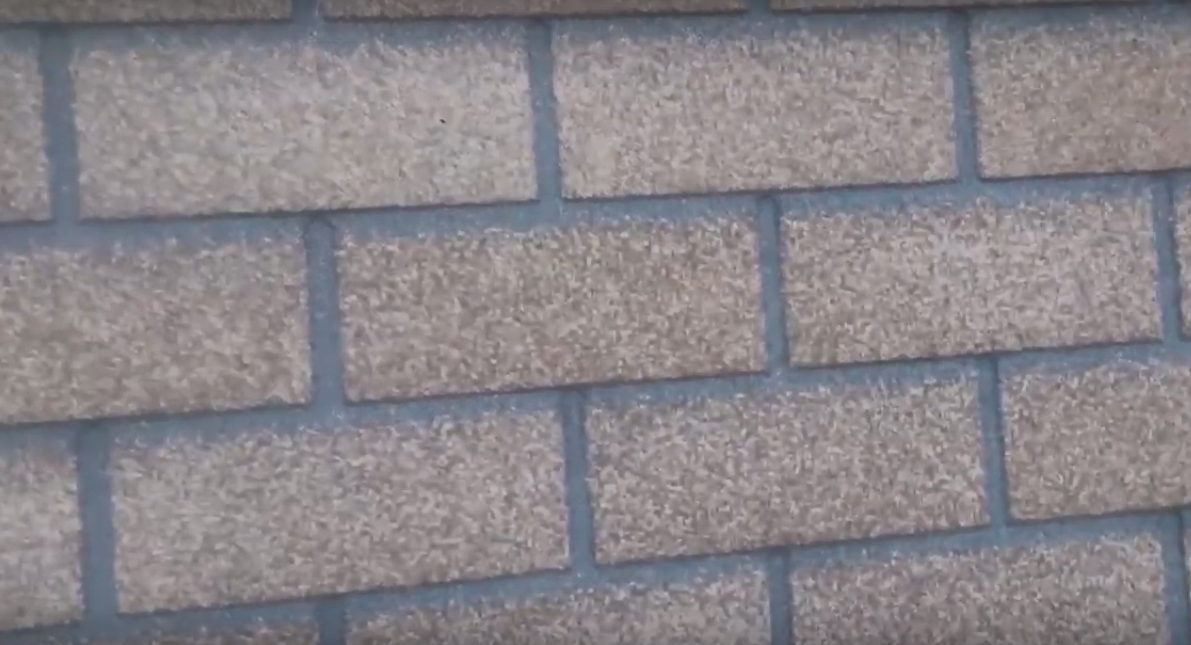
Ways to use tile adhesive
Adhesive solutions are used to perform external and internal work, that is, inside and / or outside the building, premises.
When performing outdoor work, working conditions differ significantly from indoor conditions. A more extended temperature range and its abrupt change, sudden chaotic gusts of wind, direct sunlight, changing humidity are factors that should not affect the physical properties of tile adhesives. To ensure reliable adhesion, the solution must contain special additives in its chemical composition. The choice of glue for external work should also be guided by exactly where it will be used. Porch adhesive should be water-repellent, plinth adhesive should be high-strength adhesive, and so on. Tile solutions can be used for laying paving slabs. For facing balconies and similar buildings, frost-resistant and moisture-resistant adhesives are used, since they are not heated inside.
Works inside buildings have milder environmental conditions.For areas such as toilets and bathrooms, tile adhesives are used that are moisture resistant and flexible.
Glue solution and tile used
The choice of tile adhesive may also depend on what material the tile and what dimensions will be used during work.
For cladding with natural stone or mosaics, it is recommended to use a cement-based mortar. Porcelain stoneware tiles have the properties of high density and mass, low moisture absorption and adhesion, which dictates the use of glue with special additives that provide reliable fixation.
There is an unspoken rule among professionals that the thickness of the applied adhesive solution layer should be equivalent to the thickness of the tile used. The size is also of no small importance, as it directly affects the weight of the tile when it is attached to the walls. The larger and larger the tile, the more adhesive and fixing solution.
Adhesive solution and application base
All bases, that is, surfaces on which glue is applied, are divided into two types:
- Simple:
- From brick;
- From concrete;
- From cement.
- Difficult:
- Wooden;
- plastic;
- metal;
- Plasterboard;
- Glass.
The chemical composition of the adhesive
According to the chemical composition, the adhesive is divided into three types:
- Based on cement. The adhesive is a dry mix, 90% of which is cement. The rest is sand and special additives. The adhesive powder is diluted with clean water, after which the thoroughly mixed solution is applied to the cement base. Possesses high durability and reliability.
- Dispersive. A paste-like substance that saves the preparation time of the solution. It consists of binding components from organic matter, additives for special purposes, minerals.It is used for fixing ceramics on complex substrates only indoors.
- Epoxy. The primary component of the composition is epoxy resin. Sold as a ready mix. It has the highest water resistance, which is why it is used in bathrooms and toilets, swimming pools and other similar premises.
Types of state of tile adhesive
Tile adhesives are only sold in two states:
- liquid glue. Pasty solutions that are ready to use. There are also so-called liquid nails, designed for fastening small parts and gluing fallen off or broken off parts of the tile and vulnerable to moisture.
- Dry glue. Powdered mixture, further diluted with water. Provides reliable coupling, ease of dismantling.
Tile adhesive properties
- Fast hardening.
These adhesives are widely used to bond tiles to simple substrates and are supplied as dry mixes. It can be used in buildings with low temperatures and high humidity.
- Frost resistance.
This property of the adhesive solution obtained by diluting and mixing the dry mixture in water quickly loses its plasticity due to low temperatures.
- Heat resistance.
Solutions of this property are used on the surfaces of structures with high temperatures, such as fireplace and stove structures, heated flooring. Withstand temperatures up to 100 degrees.
- Water resistance.
Waterproof adhesives are applied to base surfaces that will be in direct contact with water in the future (pool, bathroom, toilet, fountain, sauna, etc.).
- Acid resistance.
A specific property of the adhesive, designed for the operation of the solution in an aggressive environment.For example, in laboratories, factories and other industrial enterprises.
Rating of the top ten brands of tile adhesives
The list of the most popular and famous brands of tile adhesives contains information about products that are produced and manufactured in the form of a dry powder mixture with special additives. All brands of adhesives are listed with a delivery weight of 25 kg, the characteristics of which can be found in any open source of information.
Seresit SM-14 Extra
In tenth place is the tile adhesive Seresit CM-14 Extra, the use of which is to bond all kinds of ceramic tiles and granite, artificial and natural (except for marble) stone to walls and floors when working both indoors and outdoors. The adhesive solution fits perfectly on warm floors, behaves reliably in conditions of high humidity. Perfectly combined with concrete or cement surfaces, as well as with waterproofing coatings applied to them from materials such as CR65, CR166, CL51.
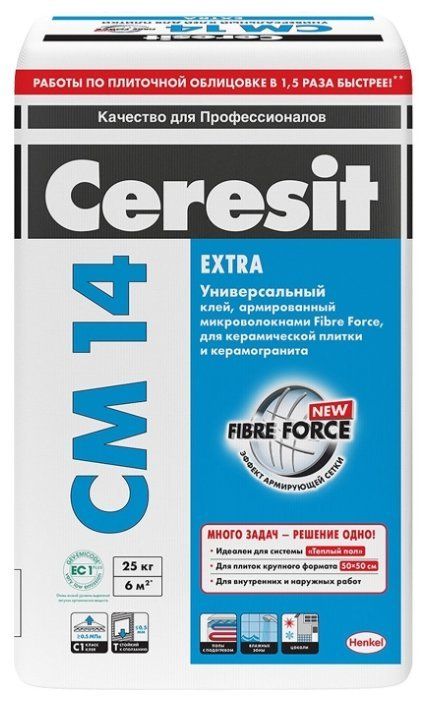
- Humidity resistant;
- Easy to apply on underfloor heating;
- Works internal and external;
- High degree of adhesion.
- Large thickness of the application layer.
Serezit SM-11
In ninth place is the adhesive mixture Seresit SM-11, the purpose of which is to provide sufficient strong adhesion between the wall or floor and ceramic tiles inside and outside the building, as well as porcelain stoneware indoors. The layer thickness of the water-soluble mixture (0.2 l per 1 kg) ranges from 1 to 10 mm. After applying the adhesive solution, you have 20 minutes to align the tiles in the vertical and horizontal planes. Water resistance of glue allows to work in damp rooms.An excellent ratio of cost and quality of this tile adhesive.
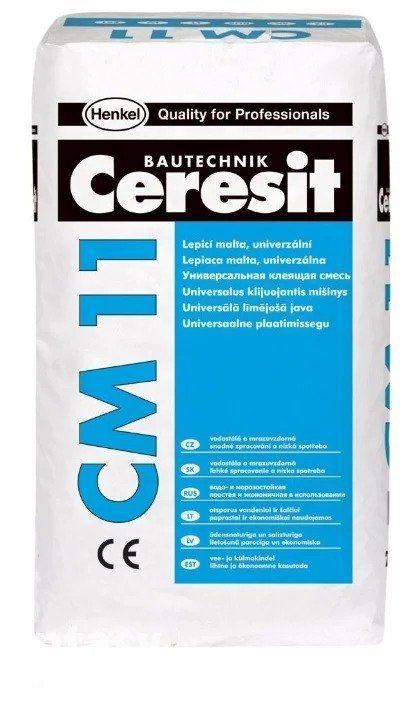
- Moisture resistant;
- Works internal and external;
- Lasting.
- Not found.
Eunice XXI
In eighth place is Eunice XXI tile adhesive. Glue, like all mixtures in the rating, is a dry powder, which is dissolved in water during the preparation of the solution. The prepared substance is very elastic, which saves the adhesive solution when applied to the prepared surface. The property of water resistance of tile adhesive makes it possible to use it in rooms with high humidity, that is, to carry out lining in a bathroom or toilet. To increase the strength of the adhesive, you can treat the surface with a primer.
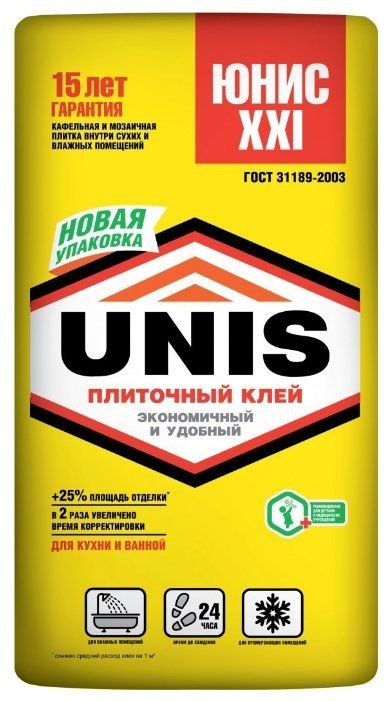
- For external and internal works;
- Economical in work;
- Waterproof.
- Capricious to uncleaned containers, tools and surfaces.
Perel Basis
In seventh place is the Perel Basis tile mixture, a cement-based bitch powder that can be applied both to walls and floors inside and outside the building to fix various types of ceramic tiles. This powder is dissolved in water (4.5-5 liters of water per 25 kg of the mixture), then mixed for no more than 5 minutes until it turns into a homogeneous solution. It is aged for 3 to 5 minutes, then be sure to mix again for about 3 minutes. The glue is applied in a thin layer on a flat and dry surface, consumed in the range of 3.5-5 kg / sq.m. Tile adhesive is produced in two versions: "summer" and "winter". Which differ in application temperatures.
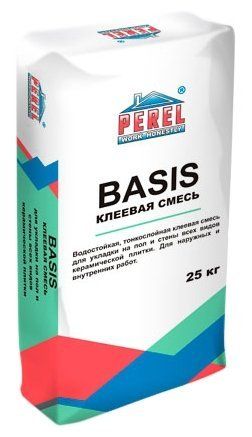
- Instant;
- Waterproof.
- Two types of glue.
MKU MS-5
In sixth place is the MKU MS-5 tile adhesive, which is widely used for the production of interior and exterior cladding with ceramic tiles and granite, tiles. Due to its chemical composition and physical properties, it can be used in rooms with high humidity. The adhesive solution is sufficiently plastic, which allows you to correct and level the position of the tile within 10 minutes. Dry mix MKU MS-5 was developed under the guidance of the Russian standard GOST 31357-2007, which allows us to confirm the quality and reliability of the tile adhesive.
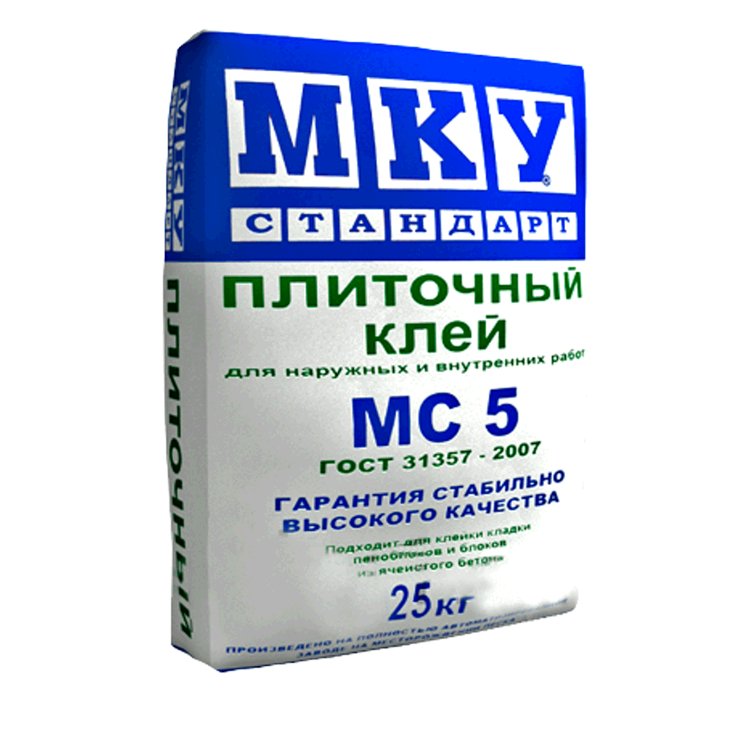
- Low cost;
- Good elasticity;
- Frost resistant.
- No.
Eunice Plus
In fifth place is Eunice Plus tile adhesive, which is a dry powder, which, after diluting with water, turns into a glue solution. The purpose of the glue is internal, external work aimed at laying and fixing porcelain stoneware and ceramic tiles. The glue is highly durable, the possibility of its use in rooms with high humidity. Easily lays down on heat-insulated floors. Laying on old tiled coverings is allowed. A good advantage is the remarkable adhesive ability, which allows you to fix the tiles in the direction from the ceiling to the floor.
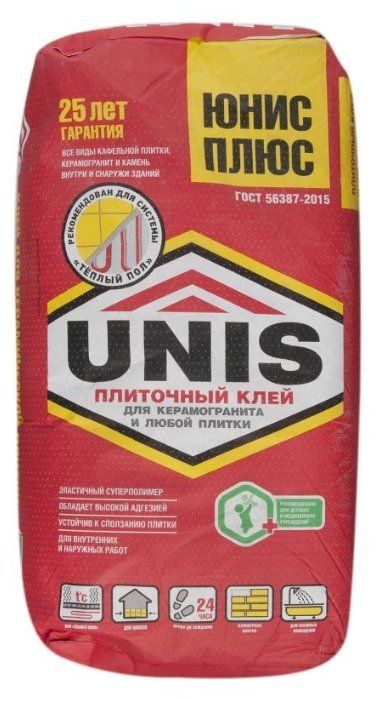
- Environmentally friendly raw materials;
- High degree of adhesion;
- Low consumption of the mixture.
- Drying time.
Volma Interior
In fourth place is the Volma Interior dry mix, by the name of which it is clear that the glue is intended for interior decoration. A popular advantage for customers compared to other tile adhesives is the lowest possible mortar consumption, only 2.5 kg/sq.m.The chemical composition of the mixture includes special additives that reduce the curing time of the adhesive. A fairly low price goes well with the quality of the adhesive, which is enough to carry out interior decoration for significant amounts of work.
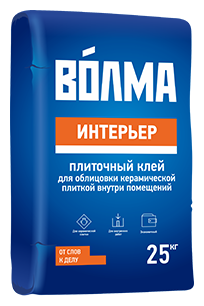
- Low price;
- Glue consumption is minimal;
- Short curing time.
- Only interior decoration.
Knauf-Vliesen Plus
In third place is reinforced glue Flizen Plus from Knauf. It is used for internal and external cladding of building walls with ceramic slabs and granite, artificial and natural stones with dimensions not exceeding 40x40 cm and weighing not more than 60 kg/sq.m. And it is used for finishing the floor with granite and ceramic slabs up to 60x60 cm. It is possible to design heated floors with tiles in accordance with the requirements of SNiP2.03.13.88. Flizen Plus is a fast curing adhesive with maximum hold. The adhesive mixture is superior in characteristics to Flizen tile adhesive, but inferior to the choice and customer reviews.
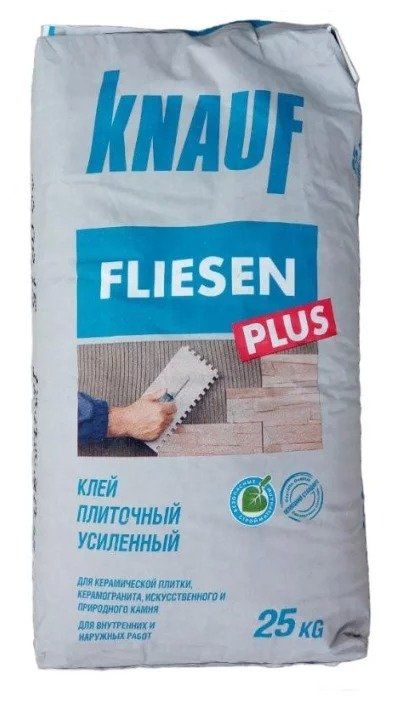
- High adhesion properties;
- External and internal works;
- Glue consumption is minimal;
- Use with warm floors.
- Not found.
Seresit SM-11 Plus
In second place is the tile adhesive Seresit CM-11 Plus. Remarkably carries out fastening of a ceramic tile when performing external and internal works, and also ceramic granite for internal works. This adhesive can be used to fasten stone and ceramic slabs, not marble, inside and outside the premises with a size of less than 50x50 cm with moisture absorption from 3%. Also used on surfaces such as concrete, plaster, cement, etc.Glue is consumed more than 3.5 kg/sq.m. Can be easily combined with a coating of CR65 waterproofing mixture.
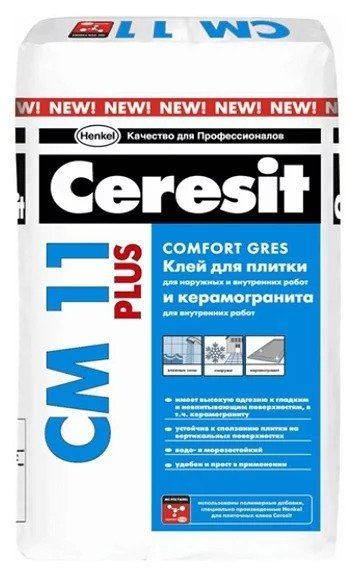
- Frost-resistant and moisture resistant;
- Work outside and inside;
- Ecological.
- High price;
- Doesn't work well on warm floors.
Knauf-Vliesen
In the first place is Fliesen glue (Fliesenkleber), which is a dry powder based on cement with the addition of some special substances. The purpose of this adhesive is to use it to perform facing work with ceramic tiles and granite, natural stone. Boards consisting of insulating polystyrene foam, polyurethane foam, mineral wool, are excellently bonded with glue. Easy to install over old tiles. Flizen easily withstands a fairly wide temperature range both for internal and external work. After drying, it is very resistant to moisture and temperature. The amount of glue applied depends on the size of the slab and ranges from 2.5 to 4.5 kg/sq.m.
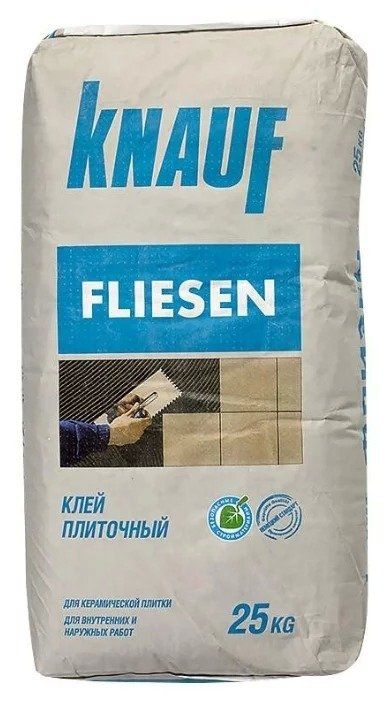
- Wide temperature range;
- It is intended for external and internal works;
- Waterproof.
- Restrictions on areas of application, types and formats of tiles.
Conclusion
From the text of the review and rating, it is clear what a variety of tile adhesives exist in the vast building materials market for 2022. What different applications, chemical compositions, physical properties are inherent in dissimilar brands of tile adhesives. And most importantly, which tile adhesives in 2022 are chosen by professionals and those who want to become like that.A person who has read the above information understands why and for what purposes certain adhesive solutions and mixtures are intended, which means that he will be able to choose the appropriate composition.
new entries
Categories
Useful
Popular Articles
-

Top ranking of the best and cheapest scooters up to 50cc in 2022
Views: 131649 -

Rating of the best soundproofing materials for an apartment in 2022
Views: 127688 -

Rating of cheap analogues of expensive medicines for flu and colds for 2022
Views: 124516 -

The best men's sneakers in 2022
Views: 124030 -

The Best Complex Vitamins in 2022
Views: 121937 -

Top ranking of the best smartwatches 2022 - price-quality ratio
Views: 114978 -

The best paint for gray hair - top rating 2022
Views: 113393 -

Ranking of the best wood paints for interior work in 2022
Views: 110317 -

Rating of the best spinning reels in 2022
Views: 105326 -

Ranking of the best sex dolls for men for 2022
Views: 104363 -

Ranking of the best action cameras from China in 2022
Views: 102214 -

The most effective calcium preparations for adults and children in 2022
Views: 102010
